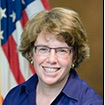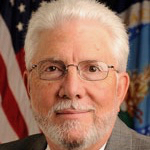

- This event has passed.
Register
The American Antitrust Institute (AAI) and the University of Wisconsin Law School are pleased to present the competition roundtable Food and Agriculture at a Crossroads: Setting Competition Priorities to Protect Producers, Consumers, and the Supply Chain. The roundtable will take up major competition policy issues involving concentrated food and agriculture markets, their interconnections to the broader national and global supply chains, and strategies for improving competition. The roundtable will begin with a briefing on the state of competition in food and agriculture, with a focus on gaps in the law or legal doctrine that makes developing competition policy particularly difficult. The day will feature three panels on topics that have important implications for competition enforcement and policy. Experts in antitrust and regulation from government, industry, advocacy, and academia will frame major competitive issues through the lens of different stakeholder and enforcement perspectives. The morning and afternoon discussions will each close with a roundtable session that gives participants the opportunity to react to and candidly discuss themes, issues, and policy recommendations for competition enforcement.
Registration for this event is closed.
Roundtable Topics
Panel 1 – Squeezed From Both Ends: Seller Market Power, Powerful Buyers, and Protecting the Producer
This panel will unpack competitive issues at the top of the supply chain. Farmers, growers, and ranchers face growing challenges in selling their products to beef, poultry, and grain processors and integrators. These markets feature high levels of concentration, powerful buyers, and allegations of market power abuse by firms that act alone or together with rivals. At the same time, producers must cope with the effects of high concentration in input markets such as fertilizer, biotechnology, and seeds. Producers thus grapple with a variety of problems: higher risks without attendant rewards, narrowing price-cost margins that squeeze incomes, and declining viability of producer operations. This panel will frame these questions and problems from a number of different perspectives, explore major issues, and identify policy options for improving the competitive landscape for food and agricultural producers.
Panel 2 – The Consumer and Food Sovereignty: Rising Concentration and Its Effects on Food Prices, Choice, and Quality
This panel will take up competitive issues at the bottom of the supply chain. Consolidation continues to move forward in critical processing, manufacturing, and retail grocery markets. Higher levels of concentration that result from consolidation have material implications for wholesale and retail consumers. These effects range from higher prices, lower quality, and loss of variety and choice. Wholesale consumers see fewer options and less diversity in purchasing food supplies while at the retail level, brand proliferation has contributed to the illusion of competition in grocery markets. This panel will explore the myriad issues faced by consumers in light of growing concentration. These range from adverse price effects, to the important non-price effects of less competition, including slower innovation, lower food quality and safety, and less variety and sustainability. Panelists will explore these issues and suggest policy priorities for improving the competitive landscape in consumer markets.
Panel 3 – Food Supply Chains: Integration, Globalization, and What it Means for Competition and Stability
This panel will examine how consolidation and concentration has spurred fundamental changes in food and agricultural supply chains and the implications of those changes on competition and the diversity and stability of the food system. Food supply chains now have national and global dimensions. Vertical integration is on the rise in key areas such as agricultural biotechnology, cattle and pork supply, and food processing and manufacturing. Horizontal and vertical integration has myriad effects, including raising the bar on entry by smaller rivals while creating incentives for “reactive” consolidation by sellers and buyers to combat growing market power of large players. This panel will ask how these developments affect competition, entry, innovation, and pricing. Panelists will focus on the role and risks of large agribusinesses in shaping policy and suggest policy priorities for addressing this emerging set of issues.
Hotel Block:
Reserve at this link: http://doubletree.hilton.com/en/dt/groups/personalized/M/MSNDTDT-AGW-20181206/index.jhtml or call the hotel direct at 608-251-5511 and reference code AGW.
Media Policy:
Members of the media are present at most AAI events. Speakers and participants should be aware that the media are on background during AAI events. If a member of the media wishes to quote or cite from the live proceedings of AAI events, they are asked to contact specific sources for permission.
Registration and Coffee
Opening Remarks
Peter C. Carstensen, Fred W & Vi Miller Chair in Law Emeritus, University of Wisconsin Law School
Panel 1 - Squeezed From Both Ends: Seller Market Power, Powerful Buyers, and Protecting the Producer
Moderator:
Diana Moss, President, American Antitrust Institute
Panelists:
Bill Bullard, CEO, R-CALF USA
J. Dudley Butler, Farm and Ranch Law Group PLLC
Peter Carstensen, Professor of Law Emeritus, University of Wisconsin Law School
James MacDonald, Chief, Structure, Technology, and Productivity Branch, Economic Research Service, U.S. Department of Agriculture
Break
Panel 2 - The Consumer and Food Sovereignty: Rising Concentration and its Effects on Food Prices, Choice, and Quality
Moderator:
Randy Stutz, Associate General Counsel, American Antitrust Institute
Panelists:
Patricia A. Brink, Director of Civil Enforcement, Antitrust Division, U.S. Department of Justice
Mary Hendrickson, Assistant Professor of Rural Sociology, University of Missouri
David Muraskin, Food Project Attorney, Public Justice
Shana Scarlett, Partner, Hagens Berman Sobol Shapiro LLP
Lunch and Keynote Address
Gwendolyn Cooley, Assistant Attorney General for Antitrust, Wisconsin Department of Justice
Panel 3 – Food Supply Chains: Integration, Globalization, and What it Means for Competition and Stability
Moderator:
Jeannine M. Kenney, Partner, Hausfeld
Panelists:
Molly Askin, Counsel for International Antitrust, Federal Trade Commission
Roger Johnson, President, National Farmers Union
Max Miller, Assistant Attorney General, Office of the Attorney General of Iowa
Kyle Stiegert, Professor, Department of Agricultural and Applied Economics, University of Wisconsin
Roundtable Discussion
Wrap up and Adjourn



Peter C. Carstensen
Fred W. & Vi Miller Chair in Law Emeritus





James MacDonald
Chief, Structure, Technology, and Productivity Branch, Economic Research Service











